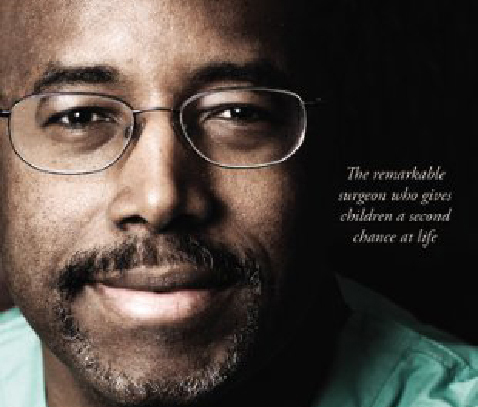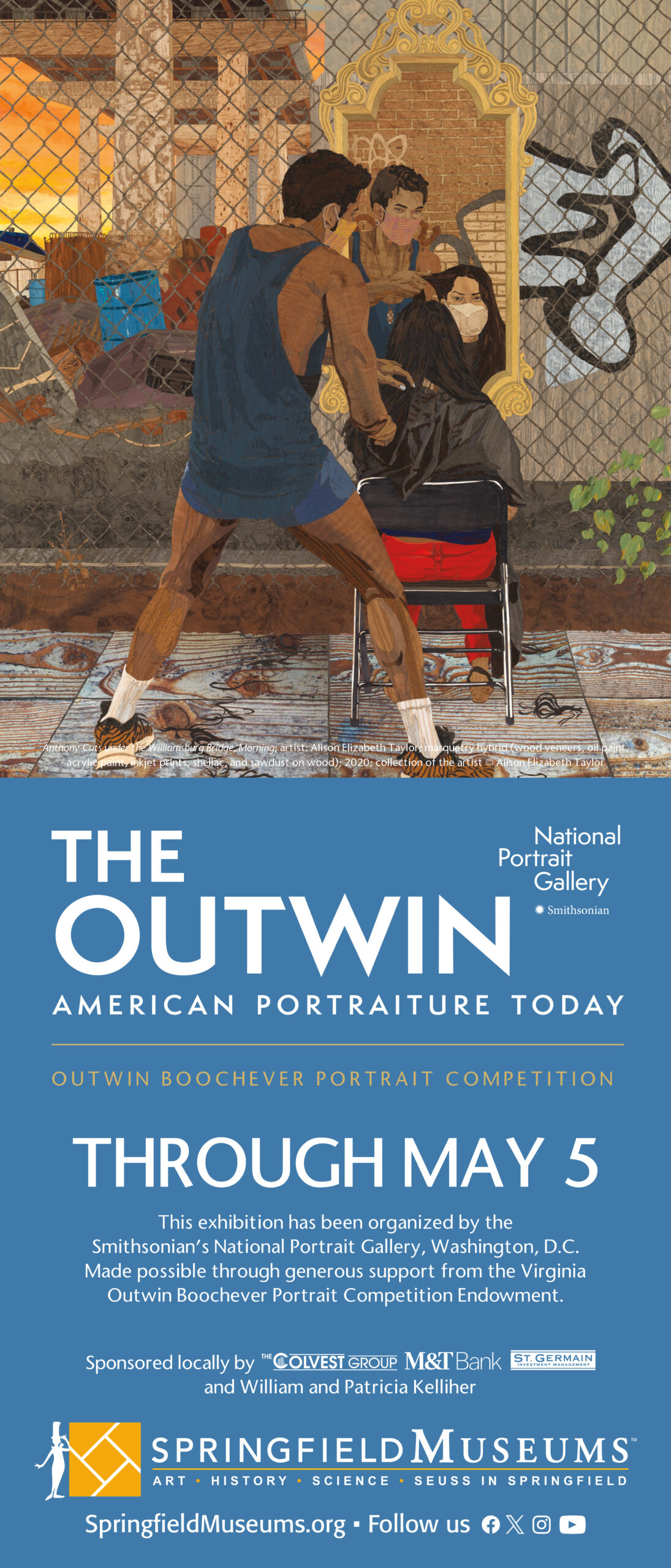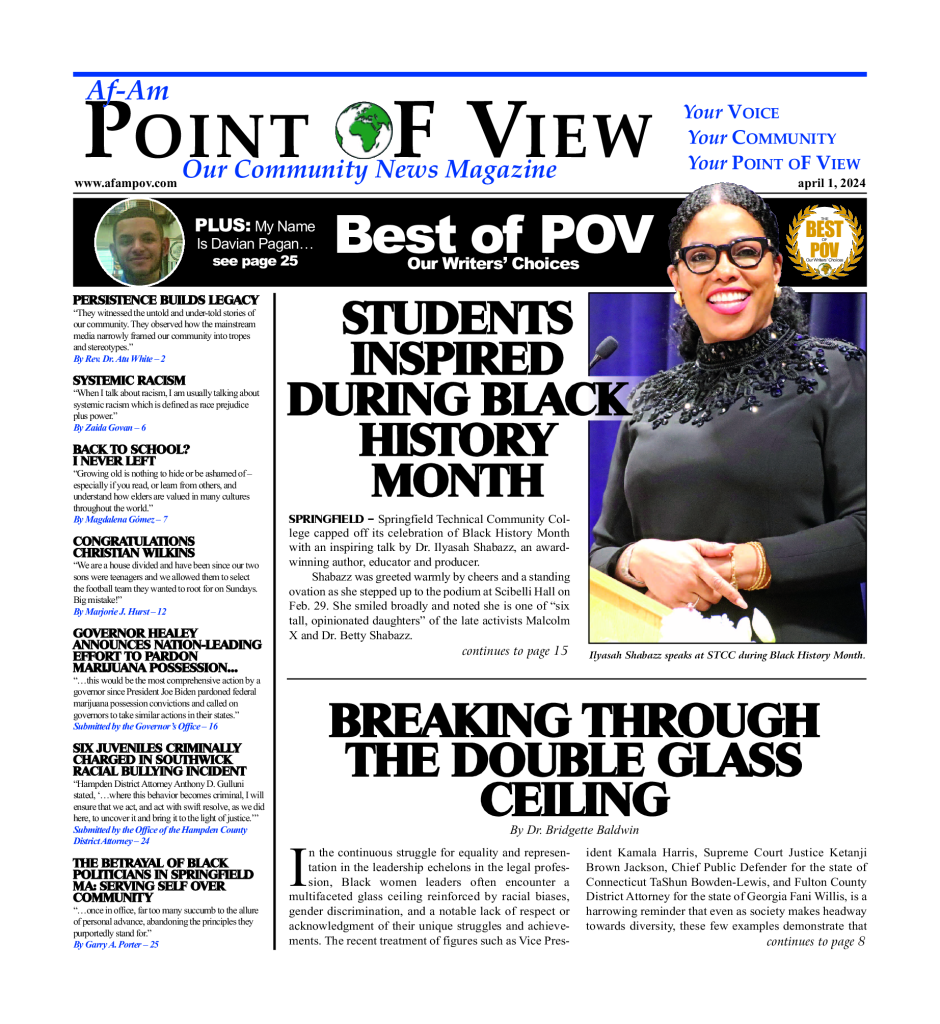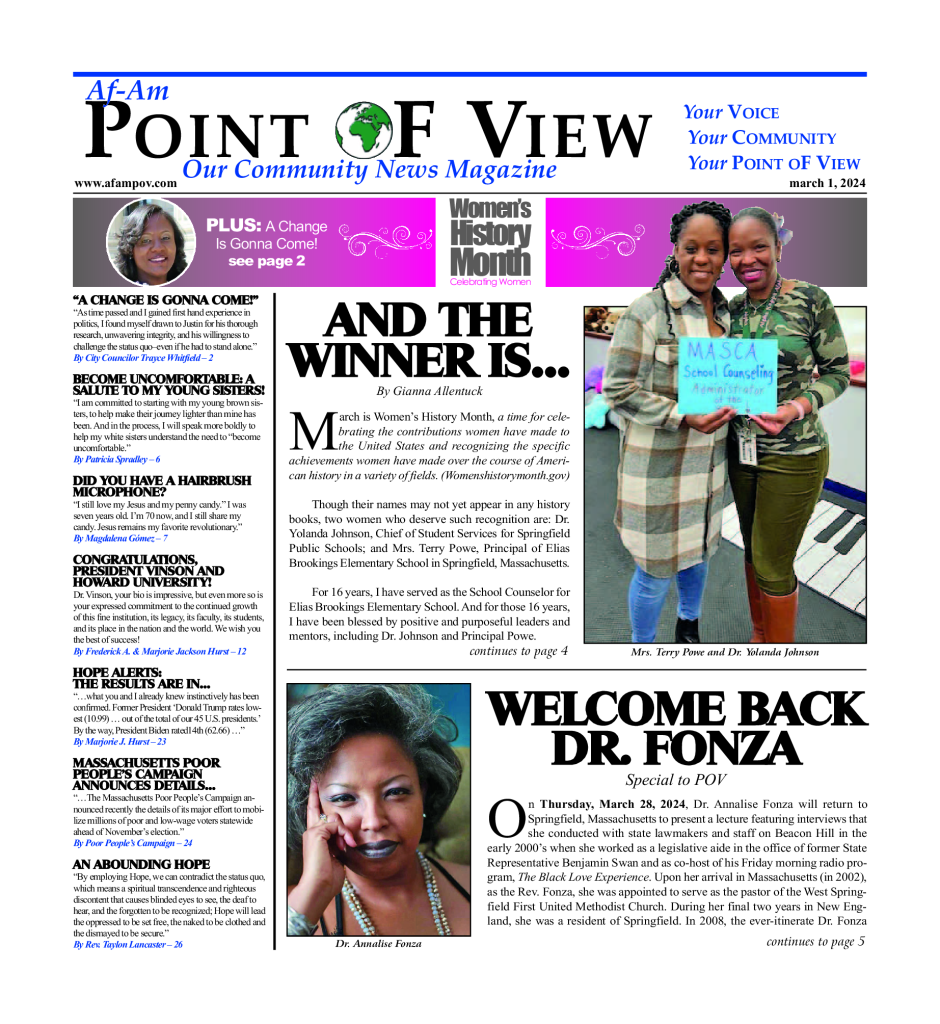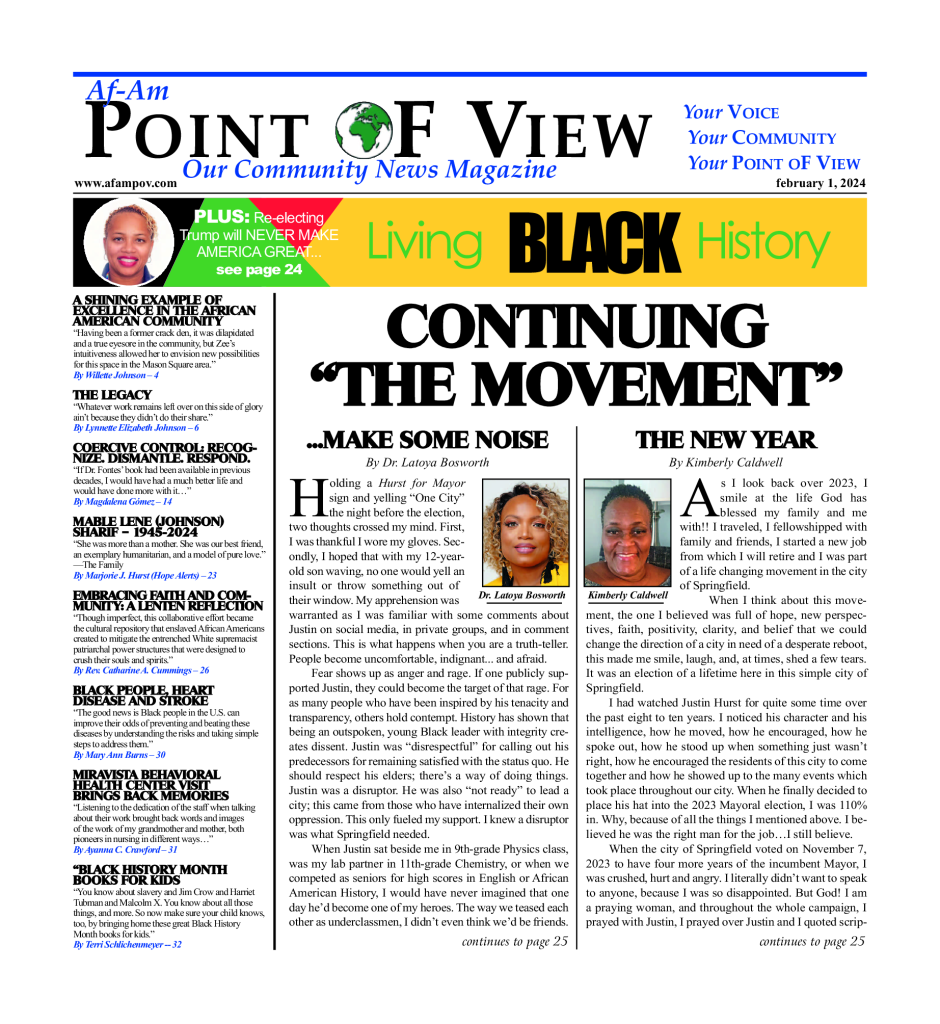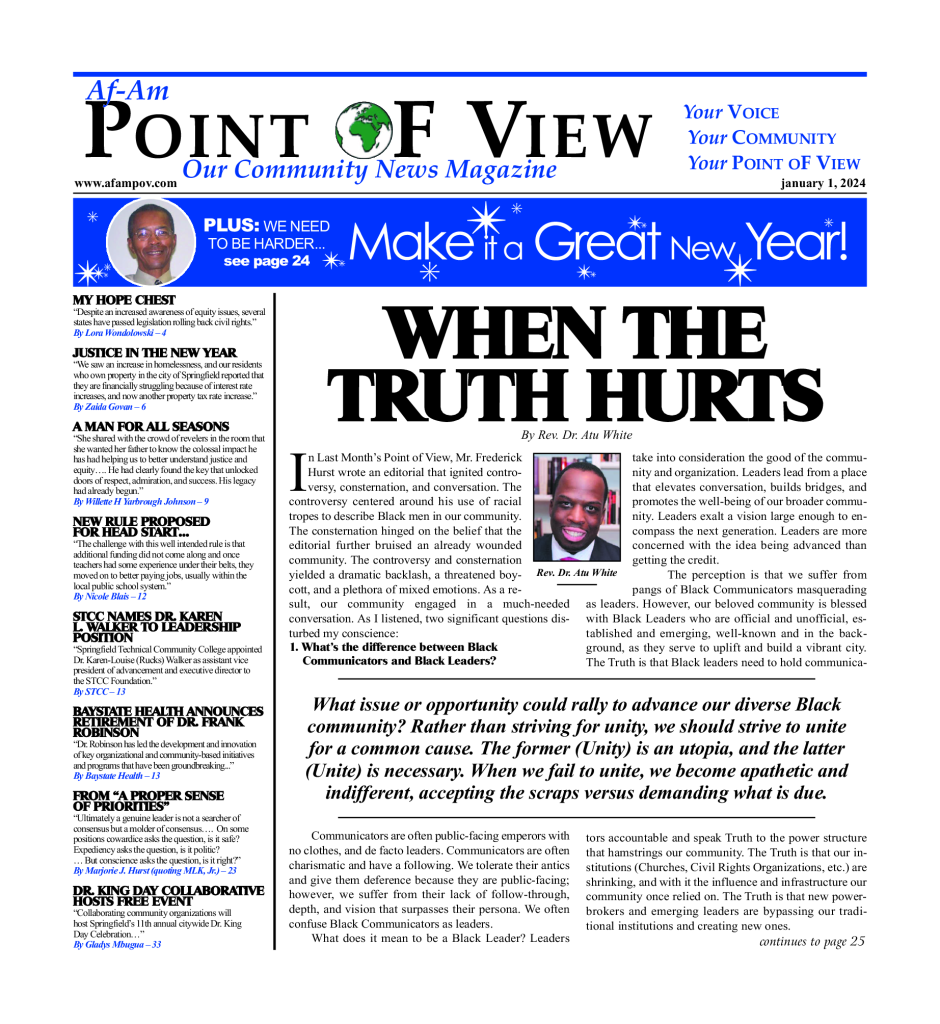–By Frederick A. Hurst—
Reprinted from July 1, 2014—
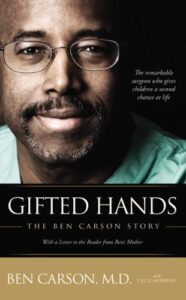

A White friend and his wife sent my wife and me an autobiography by Black M.D. Ben Carson titled “Gifted Hands.” After suffering a wisp of trepidation, I picked it up one day and couldn’t put it down until I read it from cover to cover. But the trepidation was real and familiar and lingered to the end.
I recall years ago when another White friend sent me a biography of Jackie Robinson. I suffered the same feeling. I almost threw it away but instead stuck it in a bookcase for three or four years before finally reading it.
I have never been a fan of the Jackie Robinson myth as promoted by White folks in the media and movies. I always perceived their slant as a message to Black folks that the way to make it in America was to suck up all the racist behavior that America dished up and you would earn “special” Black folks’ status like the super talented Robinson did. I never liked the dirty deal and questioned the character of Robinson for succumbing to it. Of course, as I grew older and learned more about Jackie Robinson and the times he grew up in and the courage he demonstrated on and off the baseball field, my attitude toward him softened.
But my resentment toward the message has never waned even as racism in America has receded. So when my White friend and his wife sent me “Gifted Hands,” a book about a Black man raised in a single-parent American family under the poorest of conditions who rose to be one of the most gifted and respected brain surgeons in the world, I instinctively set it aside ― not for three or four years ― but for several days before devouring it in one sitting.
I confess. It was good, inspirational reading learning about how Dr. Ben Carson’s mother encouraged him to be the best he could become and coaxed him out of his setbacks in school caused by his inclination to want to imitate the “in crowd.” And how he returned to the top of his high school class and into a sterling career at Yale University where he struggled for good grades and regular meals with equal vigor. And how he responded with uncommon humility to the revelation that he was not the smartest student in his Yale undergraduate class or in his Michigan State University medical school. And how he shrugged off the inevitable racism at Johns Hopkins Medical School where he eventually became its Director of Pediatric Surgery at age 33 and where he pioneered the perfection of a brain surgery called hemispherectomy, one of the more spectacular of his surgical successes that saved countless lives as his reputation spread around the world. And through it all, Ben Carson never forgot who he was or where he came from as he continued to reach back to young Black students to let them know what can be achieved through hard work and the belief that they can be what they want to become.
But something bothered me about “Gifted Hands” that caused me pause. And I wasn’t certain how to address it without clashing with the genuinely good intentions of my White friends who gifted it to me. Any way you look at it, Ben Carson caught a wave. But he wasn’t alone. Black people in America run huge insurance conglomerates, serve as top executives in some of the biggest industries in America including on Wall Street, lead top universities and serve as army generals and top flight professional sports leaders. And young Black musicians spawned from the ghetto, who disconnected from their White overseers and grew their own music empires, are being handsomely rewarded with tremendous wealth. And America also has Oprah Winfrey and Barack Obama to add to the names of only a few of the many who took advantage of civil rights battles that opened doors that heretofore had been closed to Black Americans by a selfish White America that didn’t want to share as reflected in the behavior of the top people in government, media, business and industry and education and even down to the labor unions that, for years, championed the rights of White workers while shutting out Black folks until relatively recently cracking open their doors.
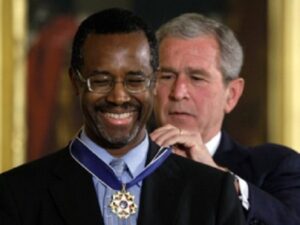

The point is that Ben Carson is an exceptional man but he is no exception within the large community of exceptional Black Americans―not currently and not historically―a fact that doesn’t take an in depth reading of American history to confirm and a fact that, to his credit, Ben Carson repeatedly affirmed but, also, one that nagged me as I moved from chapter to chapter in his wonderful autobiography.
At some point it crystallized in my mind that the book reminded me of how some White folks and some self-debasing Black folks tend to place too much emphasis on the single obvious “exceptional” Black person at the exclusion of the many less obvious, who are abundant beyond the limited imagination of the White media’s ability to record. My grandfather and I were exceptional ditch diggers and before that many of our folks were exceptional farmers and cotton pickers and many of our family were exceptional lower class workers from the South cleaning rooms, washing dishes, cleaning tables and mopping floors at northern locations like Springfield’s old Kimball Towers Hotel so that our families could move up in America. And many of these folks and others like them and their offspring all over the country spawned exceptional teachers and engineers and doctors and accountants and lawyers under restrictive circumstances that defy explanation. We just never quit…individually or generationally, in good times and in bad ― in spite of the scars of the struggles for equal opportunity in America. So as I read about Dr. Ben Carson, it occurred to me that it’s almost an insult for one of our own to be held up as the example of what we should aspire to when we know that the one represents what we have always aspired to since we landed with White folks on the shores of the new world and ended up betrayed.
From the day the first boat landed on the American shores, Black folks, who arrived with the Europeans, were destined to suffer at the hands of these new Americans who failed to convert the Indian populations to the notion of slave labor and defaulted to their Black compatriots who they later imbedded in the Constitution as 3/5 of a man each and thereby entombed the notion of slavery into the legal, economic and social fabric of the nation until the end of the Civil War after which a Constitutional amendment was passed to ban it. Reconstruction was instituted in part to enforce the ban. Although the 13th Amendment has lasted down to the present, Reconstruction, a period when the federal government protected the new constitutional right of freed slaves and allowed them to prosper, lasted only 11 years before the “Jim Crow” laws, which all but re-enslaved African Americans, became the law of the South as a compromise with Northern politicians, whose abandonment of their commitment to Black equality has always been but a negotiation away. It took years of struggle to regain a respectable portion of our rights.
So part of what creeps into my mind when I read about people like Dr. Ben Carson is how many potential Black brain surgeons went undeveloped because of this sordid history? How many resources could America have benefited from if all Black Americans with the potential to do so, from the time of the first settlement in America, had been free to develop their potential? And, yet, I continue to marvel at how much Black potential broke through in spite of the barriers even as I worry that history might repeat itself again, especially when I see what the modern Republican Party has become. And, ironically, I don’t worry so much about the Republicans and their influential Tea Party element. I worry much more about the Democrats and the so called “liberals” and “progressives” and the so-called “enlightened independents” in anticipation of another historical grand compromise that turns the clock back again. I’ve lived long enough and studied enough of the past to know, if not imminently probable, it is distinctly possible.
Don’t get me wrong. As I read “Gifted Hands,” I remained very much aware that Black America is in a better place and that Dr. Ben Carson’s story is a reflection of it. But also as I read it, I couldn’t help reacting to the more important back story that my activist background and my knowledge of history will not allow me to escape. It is almost like a civil version of a combat veteran’s PTSD syndrome. Certain stimuli send me into full intellectual combat mode as if nothing has changed since George Washington opined about his own slave holdings as he enjoyed the full benefits and since the words of Thomas Jefferson galvanized America’s revolution as he slept with one of his many slaves and fathered her children. The fact resurfaced in my mind that Abraham Lincoln was a racist who really wanted to relocate Black Americans to Africa and that his reluctant decision to free the Black slaves had nothing to do with the fact that “all men are created equal.” And images formed in my mind of Emmett Till and Medgar Evers and the many others who were lynched in the South in my lifetime and before simply because they were Black. And memories resurfaced of repeatedly refusing my grandfather’s request to accompany him to Georgia to meet his family because I feared for my life, even though my grandfather assured me it was safe as long as we drove straight through the hostile southern wilderness without stopping for food or shelter.
And I couldn’t get it out of my mind that Black soldiers returning from World War II were killed in America for nothing more than asking to be respected for their service and that Jackie Robinson was arrested and tried for refusing to move to the back of a bus in the South as he was reporting for military duty and the horrors he suffered in the North for simply being the best at his baseball trade and the years that Black athletes were shut out of the major leagues while White athletes were honored for accomplishments that Black athletes surpassed with ease when the walls came down. And I can’t forget that the likes of W.E.B. DuBois and Black power proponent Stokely Carmichael, who was a personal friend, had to end their careers outside of America because White America could not absorb Black genius that spoke truth to power and that Mohammed Ali was unfairly deprived of his prime boxing years, just like the great Jack Johnson years before him, and that Martin Luther King was shot dead in the same year that Bobby Kennedy became the second Kennedy who supported civil rights to be assassinated in my lifetime.
All of this stuff came to my mind. My father and his brother were veterans. My Uncle Alton served in the WWII North Africa campaign. My namesake Uncle Frederick served in the Pacific arena and died from a disease he contacted there. My oldest brother served in Vietnam and returned with a disability. My youngest brother did not return and was honored with the Bronze Star for his brave death at the same time the brother just below me was serving on the DMZ in Korea as it was erupting. And, though exceptional in my eyes, they were not exceptions. Black folks served with distinctions in every war that America ever had from the Revolutionary War to Afghanistan in spite of the fact that our participation has been summarily erased or eroded from American history books. Nothing cemented my disenchantment with how Black folks are portrayed in the history books and movies about war more than the movie “Saving Private Ryan” in which the shortage of African American actors in the assault on Omaha Beach in Normandy was so obvious. These were some of the many memories that surfaced as I read “Gifted Hands.”
I have nothing but the deepest respect for Dr. Ben Carson and I enjoyed reading his autobiography. And I am so pleased that my friends saw fit to share it with me. I already knew about him but the book put him in a much more enjoyable context. But the downside is that it brought back memories that took me back in time and reminded me of how many times his story has been repeated by so many African Americans, many of whom overcame much tougher circumstances than Dr. Carson, and many of whom encountered much tougher obstacles and many of whom were not blessed with the protections that he was fortunate enough to enjoy. We Black folks are all, more or less, Dr. Ben Carson. And “exceptionality” has always been our African American survival strategy, a strategy that has been based in the sage advice from our parent(s) that it was not enough to only do as well as our White counterparts. We had to work harder and do better. And we did.
My hope is that while Dr. Ben Carson is taking his message to the “hood,” and telling the kids that they can make it because he did, he is also making it clear that, though he is an example of Black exceptionality, he is but one of many. And I hope all who read “Gifted Hands” come away with the same message because it would be unfortunate and ironic if such a powerful message was diminished and reduced to a celebration of one. ■

